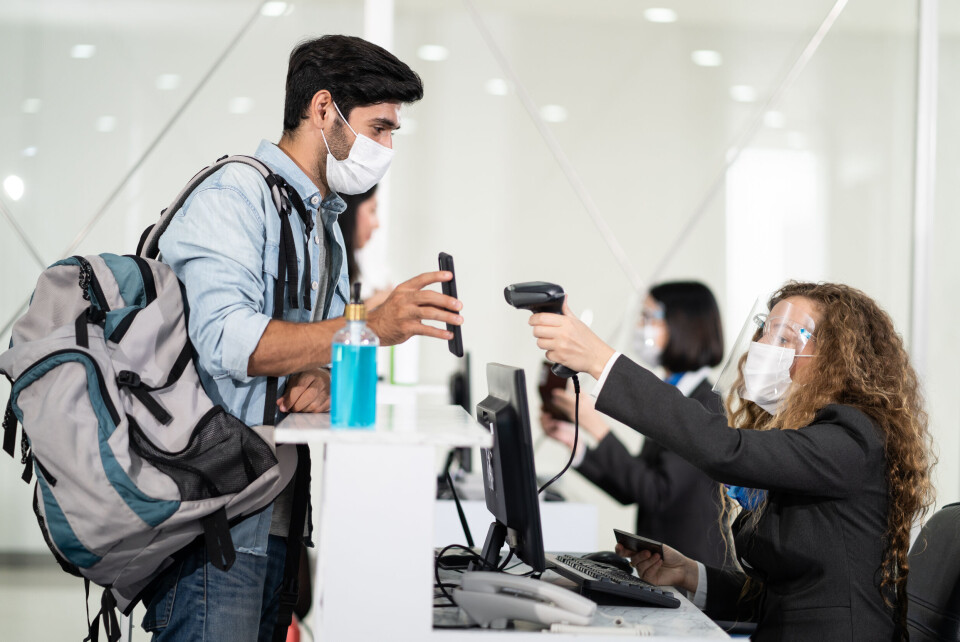-
New Paris-Jersey direct flight to launch this summer
Loganair route forms part of Channel Island’s tourism boost plan
-
Death of right-wing protester in Lyon sparks fears of further political violence
Quentin D, 23, died after reportedly being ambushed by far-left activists near site of political conference
-
Red flood alerts continue in south-west - and more heavy rain expected
Garonne river is particularly affected. French weekly weather forecast February 16 - 20
Covid: 26 more countries added to France’s green list for travel
Fully-vaccinated visitors to France from green-list countries are not subject to any restrictions, and unvaccinated travellers need only present a pre-departure test result

France has moved 26 more countries to its green list for travel, making journeys easier for people wishing to come from or go to these destinations.
The countries are: Mauritius, Cape Verde, Ivory Coast, Gabon, Ghana, Guinea, Guinea Bissau, Equatorial Guinea, Morocco, Mauritania, Uganda, Tanzania, Chad, Togo, Colombia, Cuba, Ecuador, Nicaragua, Venezuela, Cambodia, Fiji, Samoa, Laos, Nepal, Sri Lanka and Vietnam.
Already on the list are every EU member state, as well as Andorra, Iceland, Liechtenstein, Monaco, Norway, San Marino, Switzerland, the Vatican, Saudi Arabia, Bahrain, South Korea, UAE, Honduras, Hong Kong, Indonesia, Japan, Kuwait, New Zealand, Qatar, Rwanda, Senegal, Taiwan and Vanuatu.
Every other country is currently on the orange list, after France gradually emptied its scarlet and red lists from the beginning of the year.
What does being on the green list mean?
Green-list countries are described as being places where there is a “negligible or moderate circulation of the virus, in the absence of an emerging variant of concern.”
Fully vaccinated people travelling to and from these countries are not subject to any restrictions, and need only present proof of vaccination to their travel operator.
Unvaccinated people over the age of 12 coming to France from green-list countries must show the negative result of a PCR test taken in the 72 hours before or an antigen test taken in the 48 hours before their journey or a certificate of recovery from the last six months.
What does being on the orange list mean?
Orange-list countries and territories have an “active circulation of the virus, in the absence of an emerging variant of concern showing vaccine or immune escape.”
Fully vaccinated travellers coming from orange-list countries need only show proof of vaccination and a sworn statement confirming that they are not experiencing Covid symptoms and have not been in contact with an infected person in the last 14 days.
Unvaccinated people over 12 must carry out a PCR test in the 72 hours before or an antigen test in the 48 hours before their journey begins, and present the negative result to travel authorities.
They must also be able to show proof of an essential reason for travel, both when travelling to and when coming from one of the countries on this list.
They must also fill in their sworn statement and accept that they may be required to take a random Covid test on arrival in France, and must self-isolate if the result is positive.
You can find out more about France’s travel rules on the interior ministry website.
Why might a country be moved to the red list?
Countries may be put on France’s red list for travel if a new variant of concern has emerged in their territory.
In this case, France may apply an ‘emergency brake’ measure and place additional restrictions on travellers coming from these places. This would include the need to present an essential reason for travel and for vaccinated travellers to take a pre-departure test.
Related articles
Covid-19: Rules for travel to and from France
Masks, health passes: What Covid rules are in place in Monaco?
UK-France travel: Must unvaccinated teens still do pre-departure test?
Strikes, jams, new flights, Covid tests: Nine France travel updates
























